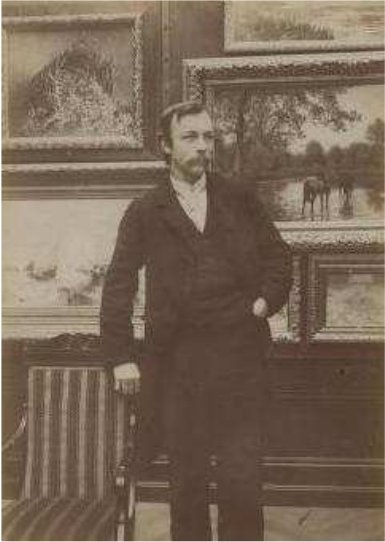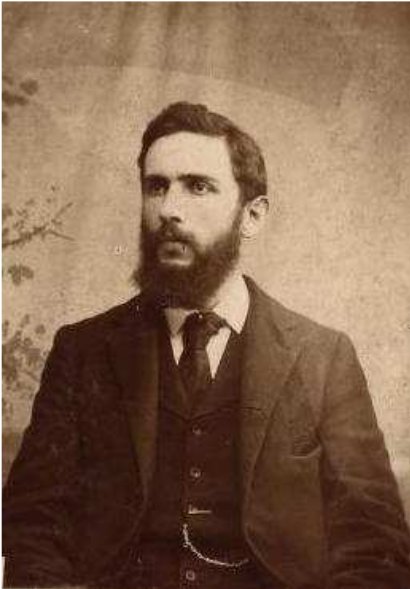2.4 Naming A Free Society
To name the social system of a free society is not as nominal a task as at first it may appear to be. It is not only the existence of complete social freedom which is absent from today’s world, but also the idea of such freedom. There is, in truth, probably no word in the English language which properly denotes and connotes the concept of the social system of a free society.
A number of persons who have recognized the fallacies in the advocacy of not just this or that government, but who have also recognized the inherent contradiction in government
itself (such as Murray Rothbard and Karl Hess) have decided that since archy means rule, or the presence of government — which they are against — they will designate their sociological position as anarchy — no rule, or the total absence of government. This decision is unfortunate, to say the least, since it embodies several epistemological fallacies. Firstly, the term anarchy is a negative one; to say that one is for
anarchy is only to say that one is against government. It is not to say what are the positive social forms which one advocates. This may be perfectly fine if one, in fact, advocates no positive social forms. However, if one advocates freedom and its economic expression laissez-faire capitalism, the designation anarchy
or anarchism,
of itself, will hardly suffice. Secondly, anarchy merely means no rule
not no coercion.
It is perfectly possible to have an anarchist society
with coercion initiated by random individuals and robber gangs. So long as these persons do not claim legal sanction or create formal and enduring institutions, one would have a very coercive anarchist society.
Further, it is possible for there to be an anarchist society in which no force was initiated, although due to the personal irrationality and mysticism of its occupants, no rational person would want to live in it. For example, imagine a society occupied exclusively by non-violent schizophrenics, or equivalently, by Zen Buddhists. [sic. Really? —RG]
Less important, but also significant, is the fact that the term anarchy,
in present usage, has come to mean not only no rule
but also has come to imply social chaos and senseless violence. This is a corruption of the original meaning of the term, but nevertheless it makes the word anarchy
an impediment rather than an implement to communicating the concept of a free society. When one wishes to defend in principle and implement in reality a free society, it is irrational to deliberately choose a term which one knows will alienate, at the outset, persons with whom one eventually intends to deal.
Another term has been suggested by Robert LeFevre, advocate of the free market and founder of Ramparts College [sic—RG] in California. Mr. LeFevre rejects the term anarchy
primarily because of its past close association with collectivism and, recognizing the fallacy of limited government,
proposes in its stead the word autarchy,
meaning self-rule.
Again this term suffers several epistemological faults. It fails to state how one should rule oneself, and in fact says nothing about the nature of social order.
Next we have the term voluntarism,
also advocated by many proponents of the term anarchism.
This expression is superior to the term anarchy
in that it does exclude coercion from its subsumed concept of social order. It is therefore acceptable for this communicative purpose. However, several necessary differentia in the valid concept of a free society are still lacking. Conceivably one could have a voluntary
collectivist society (at least for a while), in which individuals voluntarily become slaves, as well as a voluntary individualist society, in which the individual is his [sic —RG] own master. Consequently, this term is not fully satisfactory.
A phrase in increasingly popular use which I advocate as the best presently available specification of the socio-economic position of persons advocating a society of consistent rational freedom is anarcho-capitalism.
Here the prefix anarcho
indicates the lack of coercive government, and the word capitalism
indicates the positive presence of free trade based upon respect for man’s [sic] rights. This term is not ideal: the prefix anarcho
has negative semantic value, and the term capitalism
is intimately associated with the present American statist mixed economy. However, it would seem to be the best term which we now have, and consequently we will use it (and in more limited contexts voluntarism
) in the remainder of this essay.
— Jarret B. Wollstein (1969), Society Without Coercion: A New Concept of Social Organization. Society for Rational Individualism. 21-22.
A bit further down there’s also some material on strategy. After rejecting retreatism, and purely theoretical education, Wollstein advocates counter-institutions. Sort of….
4.1 Alternatives to Government Institutions
How often have you presented a brilliantly stated, logically air-tight thesis to a collectivist only to have him [sic] say, That’s fine in theory, but in practice it wouldn’t work.
THis of course is an absurdity, but it is next to impossible to convince most collectivists of this fact by purely forensic ability. Clearly, if we are to convince the great majority of American intellectuals, something more than logical theorizing
is necessary.
What I propose is the actual creation of alternatives to government institutions — initially schools, post offices, fire departments and charity; later, roads, police, courts and armed forces. Libertarians recognize that government services are hopelessly obsolete and inherently economically unsound. With the present system it is patently impossible to assess the costs of education and police investigations at all. Rather than trying to politically convince two hundred million Americans that this is so on the basis of rational economic theory, libertarians should instead demonstrate the fact by actually creating the far superior institutions of a free society. Fire departments, schools and post offices should immediately be set up by men and women who understand the free market and who are competent as businessmen [sic].
One way to do this would be for rational businessmen [sic] to cooperate with libertarian students and theorists in order to establish such enterprises as franchise operations, using all of the skills of modern industry. Simultaneously, libertarians should act politically to free the market to facilitate these enterprises; meanwhile theoreticians should attempt to infiltrate the mass media, or start their own popular magazines and telecommunications facilities to emphasize to the American people that these institutions are working far better than their governmental equivalents; and then to explain why they are doing so. Such a dramatic demonstration of the efficacy of the free market might well accomplish what mere talk alone is unable to do: free America.
How can the men and women of America fail to understand the value of freedom in all areas of human enterprise when private post offices, roads and police are actually providing far better services than government is capable of delivering?
— Jarret B. Wollstein (1969), Society Without Coercion: A New Concept of Social Organization. Society for Rational Individualism. 40.



